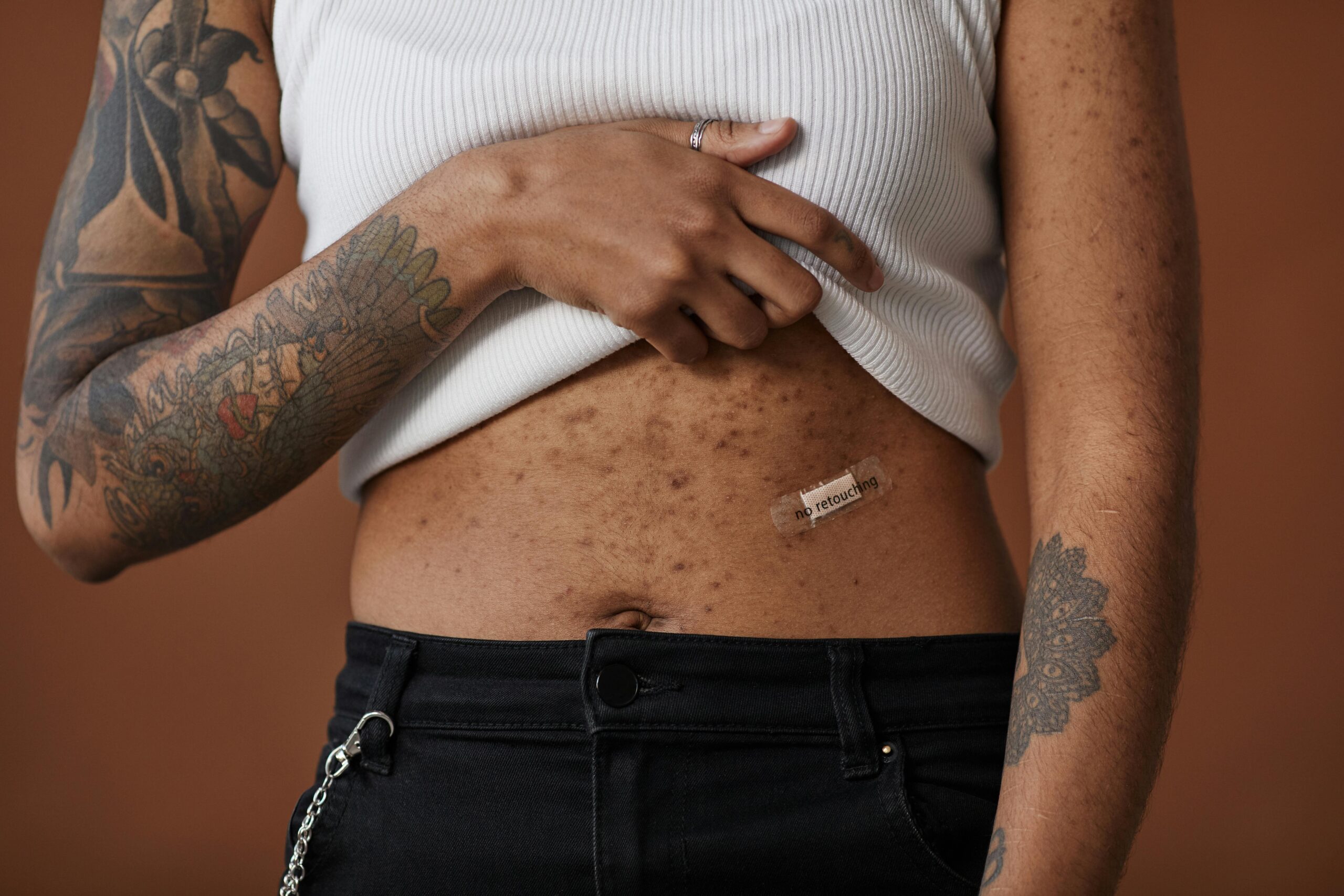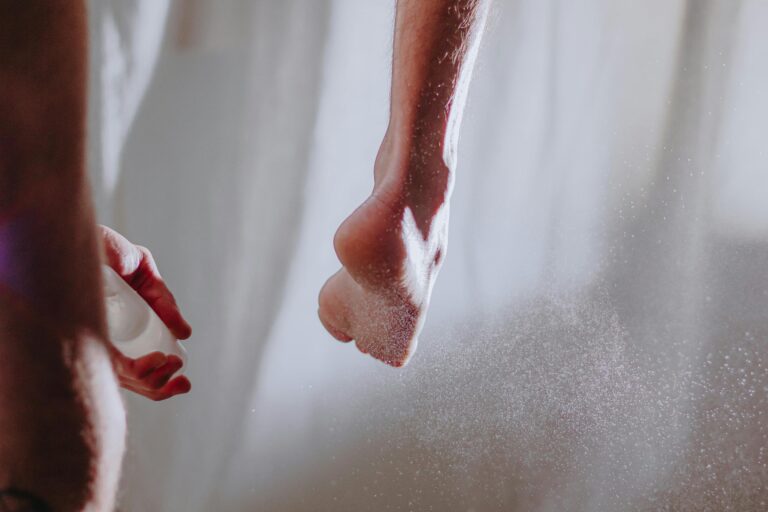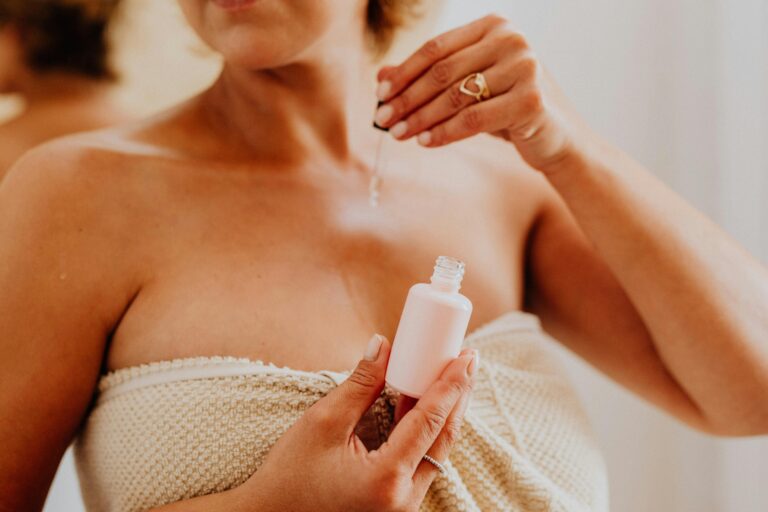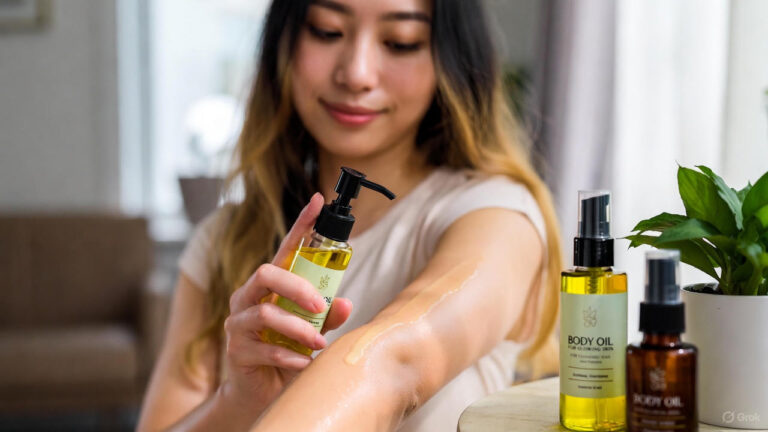Body acne is a common skin issue that affects many people, often appearing on the back, shoulders, chest, and even the arms. It can be frustrating and may impact your confidence, especially during warm weather when skin is exposed. Understanding the causes and solutions for body acne is essential for achieving clearer skin. Here’s a comprehensive guide to treating and preventing body acne.
Effective Treatment Options
1. Over-the-Counter (OTC) Treatments
OTC treatments containing ingredients like benzoyl peroxide or salicylic acid can be effective. Benzoyl peroxide works by killing acne-causing bacteria, while salicylic acid helps unclog pores. These treatments are available in various forms, including gels, creams, and washes.
2. Prescription Medications
For more severe cases, consult a dermatologist. Prescription medications, such as topical retinoids or antibiotics, may be recommended. Retinoids promote cell turnover and prevent clogged pores, while antibiotics reduce bacteria and inflammation.
3. Exfoliation
Regular exfoliation helps remove dead skin cells that can clog pores. Use a gentle exfoliating scrub or chemical exfoliant with AHAs or BHAs 2-3 times a week. Be cautious not to over-exfoliate, which can irritate the skin and worsen acne.
4. Proper Hygiene
Maintaining good hygiene is crucial in preventing and treating body acne. Shower regularly, especially after sweating or exercising. Use a mild cleanser to remove dirt and oil without stripping the skin of moisture.
5. Moisturizing
Many people skip moisturizing due to fear of clogging pores. However, using a non-comedogenic moisturizer is essential. It helps maintain skin hydration and balances oil production, which can reduce breakouts.
6. Clothing Choices
Tight-fitting clothing can trap sweat and bacteria against the skin. Opt for loose, breathable fabrics, especially during workouts. Additionally, wearing moisture-wicking fabrics can help keep sweat away from your skin.
7. Dietary Adjustments
Certain foods may contribute to acne flare-ups. High-glycemic foods, dairy, and processed sugars can exacerbate breakouts for some people. Maintaining a balanced diet rich in fruits, vegetables, whole grains, and healthy fats can improve overall skin health.
8. Stress Management
Stress can trigger hormonal changes that worsen acne. Using stress-reduction techniques like yoga, meditation, or regular exercise can help manage stress levels and reduce breakouts.
9. Sun Protection
While some sun exposure can improve acne, overexposure can lead to irritation. Use a broad-spectrum sunscreen that is oil-free and non-comedogenic. This protects your skin from UV rays without exacerbating acne.
10. Professional Treatments
For persistent body acne, consider professional treatments such as chemical peels, laser therapy, or light therapy. These treatments can target deeper layers of skin and may provide more significant improvement than topical solutions alone.
Preventive Measures
1. Regular Cleansing
Cleanse your body daily to remove excess oil and dirt. Focus on areas prone to breakouts, such as the back and shoulders. Consider using an exfoliating body wash to enhance the cleansing process.
2. Shower After Exercise
Sweat can contribute to body acne, so shower as soon as possible after exercising. Use a gentle body wash to cleanse away sweat and bacteria.
3. Avoid Harsh Products
Harsh soaps and body scrubs can irritate the skin, making acne worse. Opt for gentle, fragrance-free products that clean without causing irritation.
4. Stay Hydrated
Drinking enough water supports overall skin health. Hydration helps maintain skin elasticity and can aid in flushing out toxins.
5. Avoid Picking or Squeezing
It can be tempting to pick at body acne, but this can lead to scarring and further inflammation. Resist the urge to squeeze or pick at breakouts.
Conclusion
Treating and preventing body acne requires a multifaceted approach that combines good hygiene, effective treatments, and lifestyle adjustments. Understanding your skin and its needs can lead to clearer skin and improved confidence. Don’t hesitate to seek professional help if needed, as tailored solutions can make a significant difference.
FAQs
1. What causes body acne?
Body acne is caused by clogged hair follicles due to excess oil, dead skin cells, and bacteria. Hormonal changes, diet, and lifestyle factors can also contribute.
2. How can I treat body acne at home?
You can treat body acne at home using OTC treatments, proper hygiene, exfoliation, and non-comedogenic moisturizers.
3. Is body acne the same as facial acne?
While both are forms of acne, body acne often presents differently and can have unique triggers and treatments due to the skin’s varying thickness and oil production levels.
4. Can diet affect body acne?
Yes, certain foods, particularly high-glycemic and dairy products, can contribute to acne for some individuals. A balanced diet may help improve skin health.
5. Should I see a dermatologist for body acne?
If over-the-counter treatments aren’t effective or if your body acne is severe, it’s a good idea to see a dermatologist for tailored treatment options.
6. Can I use facial acne products on my body?
While some facial products can be effective for body acne, ensure they are suitable for larger areas and are not too harsh for the skin on your body.
7. How often should I exfoliate my body to prevent acne?
Exfoliating 2-3 times a week is generally effective. Be careful not to over-exfoliate, as this can irritate the skin and worsen acne.



